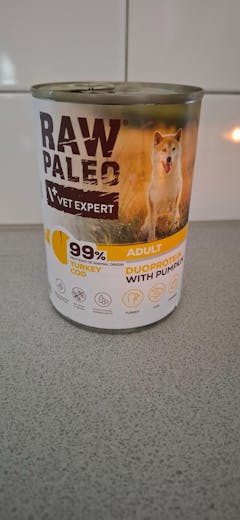Kosttillskott för Hundar
Kosttillskott för Hundar: Bygg Grunden för Ett Friskt och Aktivt Liv
På ZooStar.se är vi dedikerade till att erbjuda de bästa produkterna för din hunds välbefinnande. En balanserad kost är avgörande, men i många fall kan **kosttillskott för hundar** spela en nyckelroll för att optimera deras hälsa, förebygga problem och stödja dem genom olika livsskeden. Oavsett om din hund är en lekfull valp, en aktiv vuxen eller en äldre vän, kan rätt tillskott bidra till förbättrad rörlighet, glänsande päls, en välfungerande mage och ett starkt immunförsvar. Att välja rätt **hundtillskott** handlar om att förstå din hunds unika behov och de specifika fördelar olika ingredienser erbjuder.
Denna omfattande guide är skapad för att ge dig all information du behöver om **kosttillskott för hundar**. Vi går igenom de vanligaste typerna av tillskott, deras vetenskapliga fördelar, när de är lämpliga att använda och hur du bäst integrerar dem i din hunds dagliga rutin. Med Zoostars kvalitetsprodukter kan du ge din hund det extra stödet den förtjänar.
Varför Ge Kosttillskott till Din Hund?
Många hundägare undrar om deras hund verkligen behöver **kosttillskott**. Sanningen är att även om ett högkvalitativt helfoder täcker grundläggande näringsbehov, finns det flera situationer och livsskeden då specifika tillskott kan göra en betydande skillnad för din hunds hälsa och livskvalitet.
Vanliga Skäl att Komplettera med Hundtillskott:
- Ålder och Livsfas: Valpar i snabb tillväxt har särskilda behov för skelett- och ledutveckling. Äldre hundar upplever ofta naturligt slitage på leder, nedsatt kognitiv funktion eller minskad aptit som kan behövas kompenseras.
- Ras och Storlek: Större raser är mer benägna att utveckla ledproblem som höftledsdysplasi. Vissa raser har specifika hud- och pälsproblem.
- Aktivitetsnivå: Mycket aktiva hundar, sporthundar eller arbetande hundar utsätts för större påfrestningar på leder och muskler, och har ett högre energibehov som kan kräva extra tillskott för återhämtning och prestation.
- Specifika Hälsotillstånd: Hundar med befintliga problem som artros, känslig mage, allergier, dålig pälskvalitet eller ett nedsatt immunförsvar kan dra stor nytta av riktade tillskott.
- Förebyggande Syfte: Att ge vissa tillskott, som de för leder eller päls, kan hjälpa till att förebygga problem innan de uppstår, särskilt hos raser som är predisponerade för vissa åkommor.
- Näringsbrister: Även om det är ovanligt med större brister vid kommersiella helfoder, kan individuell absorption eller särskilda omständigheter leda till att hunden inte får i sig tillräckligt av vissa näringsämnen.
- Återhämtning efter Sjukdom eller Skada: Under konvalescens kan vissa tillskott påskynda läkning och stärka kroppen.
Det är dock alltid av största vikt att konsultera din **veterinär** innan du påbörjar någon ny tillskottsbehandling, speciellt om din hund har befintliga medicinska tillstånd, äter receptbelagda mediciner eller är dräktig/digivande.
Olika Typer av Kosttillskott för Hundar och Deras Fördelar
Zoostar.se erbjuder ett brett och noggrant utvalt sortiment av **kosttillskott för hundar**, anpassade för en mängd olika behov. Här är en genomgång av de mest populära kategorierna och deras fördelar:
1. Ledtillskott Hund: För Smidiga Leder och Rörelseglädje
Ledproblem är bland de vanligaste åkommorna hos hundar, särskilt när de blir äldre eller om de tillhör en större ras. **Ledtillskott hund** är utformade för att stödja broskets hälsa, minska inflammation och bibehålla rörligheten. De innehåller ofta en kombination av följande ingredienser:
- Glukosamin och Kondroitin: Dessa är naturliga byggstenar i brosk och ledvätska. De bidrar till att bibehålla broskets elasticitet och stötdämpande egenskaper, samt kan hjälpa till att reparera skadat brosk.
- MSM (Metylsulfonylmetan): En organisk svavelförening med starka antiinflammatoriska och smärtlindrande egenskaper. MSM kan också bidra till att bibehålla flexibiliteten i bindväv och muskler.
- Hyaluronsyra: En viktig komponent i ledvätskan som fungerar som smörjmedel och stötdämpare. Tillskott av hyaluronsyra kan förbättra viskositeten i ledvätskan och därmed ledens funktion.
- Grönläppad Mussla (GLM): En naturlig källa till glukosaminoglukaner, omega-3 fettsyror (särskilt EPA och DHA) och andra näringsämnen som har visat sig ha kraftfulla antiinflammatoriska effekter och stödja broskhälsa.
- Kollagen: En viktig komponent i leder, senor och ligament. Kollagentillskott kan stödja struktur och elasticitet i ledvävnaden.
Tecken på att din hund kan behöva **ledtillskott** inkluderar stelhet (särskilt efter vila eller träning), hälta, svårigheter att resa sig upp, ovilja att hoppa eller leka, eller en minskad aktivitetsnivå.
2. Omega-3 & Fettsyror: För Glänsande Päls, Frisk Hud och Mycket Mer
**Omega-3 fettsyror**, framför allt EPA (eikosapentaensyra) och DHA (dokosahexaensyra), är essentiella fettsyror som hundens kropp inte kan producera själv. De måste tillföras via kosten och är avgörande för en mängd kroppsfunktioner. De flesta tillskott kommer från fiskolja (t.ex. laxolja) eller algolja för vegetariska alternativ.
- Hud- och Pälshälsa: Den kanske mest synliga effekten är en förbättrad hud- och pälskvalitet. Omega-3 bidrar till en frisk hudbarriär, minskar torrhet, klåda, mjäll och kan lindra symtom vid hudallergier. Resultatet blir en mjuk, glänsande päls.
- Antiinflammatoriska Egenskaper: Omega-3 är kraftfullt antiinflammatoriskt, vilket gör det fördelaktigt vid tillstånd som artros, allergier och inflammatoriska tarmsjukdomar.
- Immunförsvar: Stödjer immunsystemets funktion, vilket hjälper hunden att bättre stå emot infektioner och sjukdomar.
- Kognitiv Funktion och Ögonhälsa: DHA är en viktig komponent i hjärnans och näthinnans utveckling och funktion. Detta gör omega-3 särskilt viktigt för valpar och äldre hundar som behöver stöd för hjärnans hälsa.
- Hjärthälsa: Kan bidra till att upprätthålla ett hälsosamt hjärt-kärlsystem och reglera blodtrycket.
Ett **omega-3 tillskott** är ett utmärkt komplement för nästan alla hundar, men särskilt för de med torr hud, matt päls, allergier eller ledproblem.
3. Probiotika & Prebiotika: För En Optimal Mag- och Tarmhälsa
En frisk mage och tarm är fundamental för hundens övergripande hälsa, eftersom en stor del av immunförsvaret sitter i tarmen och effektivt näringsupptag är avgörande. **Probiotika och prebiotika** hjälper till att balansera tarmfloran.
-
Probiotika: Levande, goda bakterier (som lactobacillus och bifidobacterium) som hjälper till att återställa och upprätthålla en hälsosam balans av mikroorganismer i tarmen. De är särskilt användbara vid:
- Diarré eller förstoppning
- Foderbyten
- Stress (som resor eller veterinärbesök)
- Efter antibiotikakurer (som kan störa tarmfloran)
- Prebiotika: Icke-smältbara fibrer (som FOS och MOS) som fungerar som "mat" för de goda tarmbakterierna, vilket stimulerar deras tillväxt och aktivitet och förbättrar tarmmiljön.
- Matsmältningsenzymer: Kan hjälpa hundar med nedsatt förmåga att bryta ned födan, vilket leder till bättre näringsupptag och minskade problem som gaser eller lös avföring.
Om din hund ofta har lös mage, gaser, förstoppning eller dålig aptit, kan tillskott för maghälsa vara mycket fördelaktiga.
4. Vitaminer & Mineraler: Grundläggande Byggstenar
Även om ett balanserat helfoder ska täcka de flesta näringsbehov, kan ytterligare **vitaminer och mineraler** vara nödvändiga vid specifika brister, under perioder av stress, sjukdom, dräktighet/digivning eller hög prestation. Dessa **hundvitaminer** och mineraler fungerar som katalysatorer för tusentals biokemiska reaktioner i kroppen.
- Multivitaminer: Ett allsidigt tillskott som säkerställer att hunden får i sig ett brett spektrum av nödvändiga mikronäringsämnen.
- B-vitaminer: Viktiga för ämnesomsättningen, nervsystemets funktion och energiproduktion. Kan vara bra vid stress, ökad aktivitet eller för att främja pälshälsa.
- Zink: Viktigt för hud- och pälshälsa, immunförsvar och sårläkning.
- Järn: Nödvändigt för produktionen av röda blodkroppar och syretransport i kroppen. Viktigt vid anemi eller hög aktivitet.
- C-vitamin: En antioxidant som stödjer immunförsvaret och kollagenproduktionen.
Var dock alltid försiktig med överdosering, särskilt av fettlösliga vitaminer (A, D, E, K), då dessa kan lagras i kroppen och bli toxiska. Följ alltid doseringsanvisningarna noga.
5. Immunförsvar & Stresshantering: För en Robust Hund
Ett starkt immunförsvar är avgörande för att din hund ska kunna stå emot sjukdomar och infektioner. Tillskott för **immunförsvar hund** kan stärka kroppens naturliga försvar. Dessutom finns det tillskott som kan hjälpa hundar att hantera stress och ångest i olika situationer.
- Beta-glukaner: Ämnen som finns i jäst och svamp och som har visat sig kunna modulera och stärka immunsystemets respons.
- Antioxidanter: (t.ex. C-vitamin, E-vitamin, Selen) Skyddar kroppens celler från skador orsakade av fria radikaler.
-
Lugnande tillskott: Innehåller ofta naturliga ingredienser som L-tryptofan (en föregångare till serotonin, "lyckohormonet"), hydrolyserade mjölkproteiner, B-vitaminer, eller örter som kamomill och valeriana. Dessa kan vara mycket hjälpsamma vid:
- Fyrverkerirädsla
- Separationsångest
- Resor
- Veterinärbesök eller andra stressiga situationer
Dessa tillskott kan vara särskilt användbara för hundar i krävande miljöer, vid förändringar i hemmet eller inför utställningar och tävlingar.
Att Välja och Använda Kosttillskott Korrekt
Att välja rätt **kosttillskott** för din hund och säkerställa korrekt användning är avgörande för att uppnå önskade resultat och undvika oönskade effekter.
Viktiga Aspekter att Tänka På:
- Veterinärrådgivning: Som nämnts, prata alltid med din veterinär först. De kan hjälpa dig att identifiera specifika brister eller behov baserat på din hunds hälsa, ålder, ras och livsstil.
- Kvalitet är A och O: Köp alltid kosttillskott från välrenommerade märken och butiker, som ZooStar.se. Kontrollera att produkterna är anpassade för djur och att de innehåller deklarerade ingredienser i relevanta mängder.
- Följ Doseringsanvisningarna: Överskrid aldrig den rekommenderade dosen. Mer är inte alltid bättre, och överdosering kan vara skadligt, särskilt med vitaminer och mineraler.
- Form och Smak: Kosttillskott finns i olika former: pulver att blanda i maten, tuggtabletter, flytande lösningar eller kapslar. Välj en form som din hund accepterar väl. Många tillskott är smaksatta för att underlätta intaget.
- Regelbundenhet och Tålamod: De flesta kosttillskott ger inte omedelbara resultat. Det kan ta flera veckor eller månader av konsekvent användning innan du ser full effekt, särskilt för tillstånd som ledproblem eller pälskvalitet.
- Förvaring: Förvara tillskotten enligt anvisningarna, ofta svalt och mörkt, för att bibehålla deras styrka och hållbarhet.
Kosttillskott som Del av Hundens Helhetsvård på Zoostar.se
På Zoostar.se ser vi **kosttillskott för hundar** som en viktig pusselbit i den övergripande vården. För en truly frisk och lycklig hund är det viktigt att tänka på alla aspekter av dess välmående. Vi erbjuder ett komplett utbud av produkter som kompletterar varandra:
- Hundens Apotek: Vår primära kategori för hundhälsa där du hittar allt för både förebyggande vård och akuta behov.
- Parasitskydd & Insektsskydd: Ett starkt immunförsvar, som kan stödjas av rätt **kosttillskott**, är avgörande för att hunden ska kunna stå emot sjukdomar som sprids av fästingar och andra parasiter.
- Munvård: God munhygien är grundläggande för hundens allmänna hälsa och välbefinnande. Problem i munnen kan påverka hela kroppen.
- Vård & Skydd: Produkter för sårvård, tasskydd och skydd mot yttre påfrestningar kompletterar den inre hälsan som **hundtillskotten** bidrar med.
- Hundvård & Hygien: Regelbunden pälsvård, bad och hygienrutiner är inte bara för utseendet, utan också viktiga för att upptäcka tidiga tecken på ohälsa och bidrar till en ren och frisk hund.
Genom att kombinera en näringsrik kost med strategiskt valda **kosttillskott för hundar** och en god allmänvård, ger du din hund de absolut bästa förutsättningarna för ett långt, friskt, lyckligt och aktivt liv. Utforska vårt sortiment på Zoostar.se idag och investera i din bästa väns framtid!
Vanliga Frågor om Kosttillskott för Hundar (FAQ)
Vilka hundar behöver kosttillskott?
Kosttillskott kan vara fördelaktiga för hundar i olika livsskeden och med specifika behov. Detta inkluderar valpar i tillväxt, äldre hundar med ledproblem, mycket aktiva hundar, hundar med hud- och pälsproblem, känsliga magar eller ett nedsatt immunförsvar. Vissa raser kan också ha genetiska predispositioner för vissa brister eller åkommor som tillskott kan lindra eller förebygga. Rådgör alltid med din veterinär för en individuell bedömning.
Är det säkert att ge flera kosttillskott samtidigt?
Det beror på vilka tillskott det rör sig om. Vissa kombinationer kan vara fördelaktiga, till exempel ledtillskott med omega-3. Andra kombinationer kan leda till att hunden får i sig för höga doser av vissa näringsämnen, särskilt om flera tillskott innehåller samma vitaminer eller mineraler. Rådgör alltid med din veterinär innan du kombinerar flera tillskott för att undvika överdosering och interaktioner.
Hur vet jag om ett kosttillskott fungerar på min hund?
Effekten av ett kosttillskott kan ta tid att märkas. För till exempel ledtillskott eller pälstillskott kan det dröja flera veckor innan du ser en märkbar förbättring. Var uppmärksam på subtila förändringar i din hunds beteende, rörlighet, energinivå, pälskvalitet eller matsmältning. Anteckna gärna symtom innan du börjar med tillskottet och följ upp regelbundet. Om du är osäker på effekten eller om din hunds tillstånd förvärras, kontakta din veterinär.
Kan jag ge mänskliga kosttillskott till min hund?
Nej, detta rekommenderas starkt att undvika! Mänskliga kosttillskott är formulerade för människors ämnesomsättning och dosering. De kan innehålla ingredienser, sötningsmedel (som xylitol), eller doser som är giftiga eller skadliga för hundar. Välj alltid kosttillskott som är specifikt framtagna och doserade för hundar.
Vad är skillnaden mellan probiotika och prebiotika?
**Probiotika** är levande, goda bakterier som hjälper till att upprätthålla en hälsosam tarmflora. De koloniserar tarmen och bidrar till matsmältning och immunförsvar. **Prebiotika** är en typ av fibrer som fungerar som "mat" för de goda bakterierna i tarmen. De stimulerar tillväxten och aktiviteten hos probiotika och bidrar till en hälsosam tarmmiljö. De arbetar ofta i synergi.
Kan ett kosttillskott orsaka biverkningar?
Precis som med alla substanser kan kosttillskott ibland orsaka biverkningar, även om de är sällsynta vid korrekt användning. Vanliga, milda biverkningar kan inkludera magbesvär som lös mage eller illamående, särskilt vid start av ett nytt tillskott eller om dosen är för hög. Allvarligare reaktioner är ovanliga men kan förekomma vid allergi mot en ingrediens eller överdosering. Avbryt användningen och kontakta din veterinär om du misstänker en negativ reaktion.
Är "naturliga" kosttillskott alltid bättre?
Begreppet "naturligt" är inte alltid en garanti för säkerhet eller effektivitet. Även naturliga ämnen kan vara skadliga i fel doser, och kvaliteten och renheten kan variera stort mellan olika produkter och tillverkare. Det viktigaste är att välja produkter från pålitliga märken som har genomgått kvalitetskontroller och är vetenskapligt underbyggda. Rådgör med din veterinär om du har frågor kring naturliga vs. syntetiska tillskott.
Husdjursprodukter Online
Utforska fler populära hundkategorier
Här hittar du många av våra mest efterfrågade kategorier – från hundfoder och godis till tillbehör, vård och aktivering.
Ledande Fodertillverkare
Populära hundfodermärken
Här hittar du våra mest populära hundfoder – från spannmålsfritt till veterinärfoder. Klicka på ett varumärke för att se hela sortimentet.






